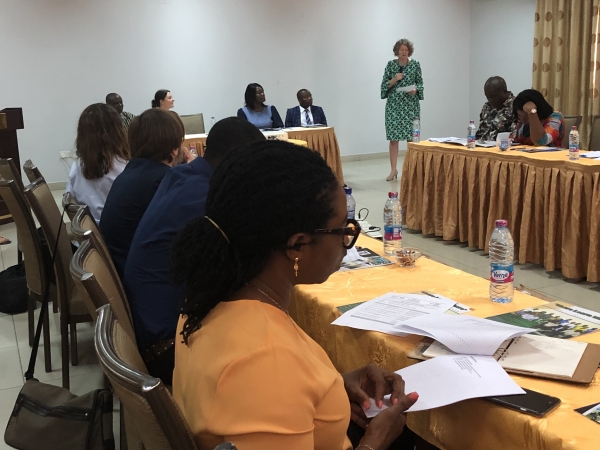A forum has been held in Accra to disseminate key findings from a study on torture and organised violence that people with psycho-social disability suffer in prayer camps, homes of traditional healers and within the domestic setting. The study forms part of a pilot project funded by DINGNITY – Danish Institute Against Torture, titled “Building informed grounds for rehabilitation of survivors of Torture and Organised Violence”. The study was conducted in Zabzugu District of the Northern Region by BasicNeeds-Ghana and in Ga West Municipality of the Greater Accra Region by the Mental Health Society of Ghana (MEHSOG).
The Danish Ambassador to Ghana, Her Excellency Tove Degnbol, who gave the key-note address at the dissemination forum said “Every society must take proper care of citizens with mental illness and shield them from cruel, inhuman, and degrading treatment and practices.” She re-echoed a section of the research report that indicated that most people committed to treatment at faith based and traditional healers are sent there by their caregivers who might not fully know or understand the full extent of harm they may be exposed to, and advised the partners to further probe to find out the motivation underlying such decisions of relatives and families.
The Deputy Chief Executive Officer of the Mental Health Authority of Ghana, Dr Caroline Amissah, remarked that the key findings had successfully brought to the fore issues of abuse of the rights of people who access treatment at traditional and faith-based centres. She used the opportunity to remind participants of the Quality Rights initiative of the World Health Organisation currently ongoing, which seeks to empower service providers with knowledge of the rights of people with mental illness as a means of reducing torture and abuse suffered at treatment centres.
A representative of the Ghana Association of Faith-based and Traditional Medicine Practitioners (GAFTRAM) said that the study report reflected the Association’s willingness to collaborate with formal health service providers. The study found out that 90% of traditional/faith-based healers are open to collaborating with formal health service providers, with 72% of them having actually referred clients for treatment at a hospital.


